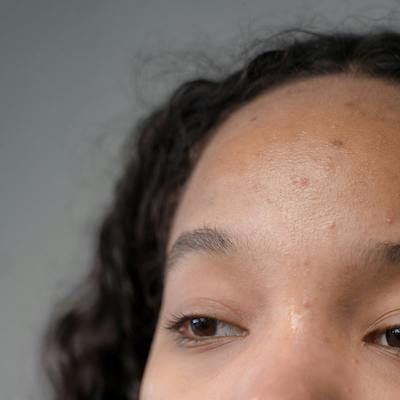Article
Abrocitinib Provides Skin Clearance, Itch Relief in 12-Week Trial
Author(s):
New phase 2b data shows the JAK1 inhibitor is beneficial for moderate to severe adult atopic dermatitis.

Melinda J. Gooderham, MD
Oral Janus kinase 1 (JAK1) selective inhibitor abrocitinib is associated with efficacious and safe outcomes for treatment of patients with severe atopic dermatitis, according to findings from a new phase 2b trial.
The data from the randomized clinical trial show the small molecule therapy could provide a substantial clinical effect—and may help meet an expressed need for novel therapies indicated for moderate to severe atopic dermatitis.
Abrocitinib has been proven to inhibit several cytokine signaling pathways integral to the pathology of atopic dermatitis—including interleukin 4 (IL-4), IL-13, and IL-31. A team of investigators, led by Melinda J. Gooderham, MD, of the SKiN Center for Dermatology in Peterborough, Ontario, conducted this placebo-comparative trial among adults with moderate to severe atopic dermatitis.
Their intent was to present investigator-reported outcomes in this phase 2b assessment, and to include patient-reported outcomes in an additional report. The double-blinded, parallel-group trial was conducted at 58 international centers, with 267 patients aged 18-75 years old.
Patients were clinically diagnosed with moderate to severe atopic dermatitis for at least 1 year, and had inadequate response or contraindication to topical therapy for at least 4 weeks in the past year.
All patients were randomized 1:1:1:1:1 to either 200 mg, 100 mg, 30 mg, or 10 mg abrocitinib, or placebo, once daily for 12 weeks.
Gooderham and colleagues assessed for a primary outcome of patients achieving an Investigator’s Global Assessment (IGA) of clear (0) or almost clear (1) skin, with an improvement from baseline of 2 grades or more at week 12.
They also sought a secondary outcome of percentage change from baseline in Eczema Area and Severity Index (EASI) at week 12, and for safety- and tolerability-related outcomes.
At 12 weeks, 21 of 48 (43.8%) of patients to receive 200 mg abrocitinib (P < .001, 2-sided), 16 of 54 (29.6%) of patients to receive 100 mg abrocitinib (P < .001), and 3 of 52 (5.8%) patients to receive placebo achieved IGA grades of 0 or 1, with improvements of at least 2 grades. Investigators reported the rates correspond to a model-based maximum effect of 44.5% (95% CI, 26.7 — 62.3) for 200 mg abrocitinib and 27.8% (95% CI, 14.8 – 40.9) for 100 mg abrocitinib.
Patients on 200 mg therapy reported a mean 82.6% reduction in EASI (90% CI, 72.4 — 92.8; P < .001). Mean reduction was 59.0% (90% CI, 48.8 — 69.3; P= .009) for those on 100 mg therapy, and 35.2% (90% CI, 24.4 — 46.1) for those on placebo.
More than two-thirds (68.9%) of all patients reported adverse events—the most frequent being dermatitis atopic, upper respiratory tract infection, headache, nausea, and diarrhea. Investigators also observed dose-dependent decreases in platelet count, but trended upward toward baseline levels after week 4.
Gooderham and colleagues concluded the JAK1 inhibitor showed “rapid onset of action for disease severity and itch,” with the 44.5% maximum-effect IGA improvement associated with 200 mg abrocitinib marking similarly to that observed with 16-week biologic therapy dupilumab in another clinical tria.
That said, a direct comparison between the 2 clinical trials due to differing patient baseline criteria and treatment duration.
In discussions surrounding the future of atopic dermatitis and psoriasis care, investigators have frequently touted the shown benefit of both small molecule and biologic drugs.
In an interview with MD Magazine®, Brad Glick, DO, dermatologist and principal investigator for GSI Clinical Research, said the recent decades’ worth research into cytokines and interleukins has launched a new understanding of the pathology and treatment of the most common dermatologic conditions.
“And because I can intervene with this plethora of agents that we have right now—and I think the important story now is that we can practice precision medicine, we can treat this heterogeneous condition like psoriasis, its host of comorbid conditions associated with it, and tailor the treatments specifically for the presentation to the patient,” Glick said.
Investigators concluded both 200 mg and 100 mg once-daily abrocitnib show positive efficacy and acceptable safety in adult patients with moderate to severe atopic dermatitis. The findings suggest the therapy alone may provide a sufficient clinical benefit for at-need patients, though further evaluation will take place in a phase 3 trial.
The study, "Efficacy and Safety of Oral Janus Kinase 1 Inhibitor Abrocitinib for Patients With Atopic Dermatitis," was published online in JAMA Dermatology.





